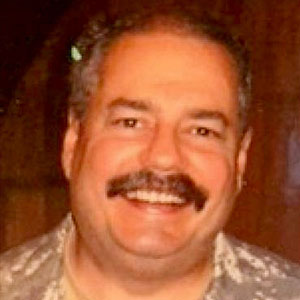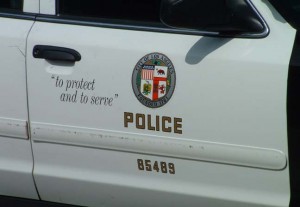There are a number of reasons that you are mistaken to rely upon the police to protect your life and safety, and those of your loved ones. Those reasons include:
- The police are not as interested in your safety as you are.
- The police take time to get to you, and you are already there.
- Even among carefully selected police officer, not all are good guys.
Each of these three factors is illustrated with reference to the Newtown, Connecticut PD and the Newtown shootings. We’ve seen no indication that the 44-officer Newtown force is anything but a good police department, so bear that in mind: these are limitations that exist in even the best of police forces. If you have a really bad one (Chicago, Detroit, Washington DC?) then there are many more reasons to take your safety into your own hands.
The police are not as interested in your safety as you are
This is not a calumny against the police, it’s the basic truth. Most POs will concentrate, first, on self-preservation. (We see this at the Columbine shooting, where an armed school resource officer bravely traded fire with the shooters, but then withdrew, and the SWAT/tactical team that came essentially cowered outside the building for a long period). To the extent there’s a mantra in modern police religion, it’s go home at the end of your shift, regardless.
In the real world, a lot of cops step up beyond self-preservation, but self-preservation is what their training and duty demands of them, and it’s all you can really count on. Those cops that commit acts of selfless sacrifice, or risk same, are going above and beyond the call of their duty, and while they’re out there, that is more than you can ask of a man or woman as a matter of public policy.
In Newtown, he police entered the building directly, but deliberately and cautiously. They did well, but they could have done better. In all honesty, though, their performance on this measure was moot, because of the next item:
The police take time to get to you, and you are already there.
Only an armed person at the scene of the shooting is a zero-dispatch response, and that’s true whether the armed person is a cop or a citizen. The police response to Newtown has been praised as rapid, but in fact it was slow and dilatory. It took then 20 minutes to respond to the scene. If you have a smartphone, set its timer function to 20:00 and start in now. In 20 minutes, a trained and experienced marksman can easily fire between one and two thousand carefully aimed shots. Even a nutcase with minimal training, like the wretch in Newtown, can work incredibly deadly execution at short range, with a disarmed and defenseless target set. (Yes, we’re saying it could have been far worse).
Because a criminal, insane shooter has the initiative — no one is expecting a nutcase to open fire in most everyday situations — he’s going to take his first couple of targets, regardless. Unless you’re guarded like the President, he’s going to get his first shots off. But he can only run up the body count if he’s not resisted quickly, as in Newtown, or if the resistance is ineffective, as in Columbine. Time he spends trading shots with or evading an armed resister, whether a police officer, private guard or armed citizen, is time he is not murdering more of his targets.
And, in most cases (Columbine being the glaring exception), initial resistance shatters the worldview of the shooter and he opts to take himself out. So since we can’t do any reasonable thing about nut cases — a 1950s commitment policy might have institutionalized the Gabrielle Giffords shooter, who was bughouse crazy, but the ACLU and courts have made it impossible to institutionalize someone like the Newtown shooter, who was merely a little odd.
We’re up against the fact that, even though these shooters are definitionally insane, a lot of people with the same pre-shooting symptoms are perfectly harmless. If you were to lock up every teen with the affect and behavior of the Newtown kid, pre-shooting, you’d have institutionalized 1o,00o potential computer programmers, insurance actuaries, and baseball statisticians for every potential murderer.
This takes us far beyond the framework our government is allotted under the Constitution or the common law, into totalitarian territory. And it still won’t get the clever whack-job who is self-aware enough to hide his symptoms.
So the pshrinks can’t save us because of the false-positive and the false-negative rates. The cops can’t save us because they’re not already there. If we put them there, already, would that help?
Maybe not. Because:
Even among carefully selected police officers, not all are good guys.
While most police are admirable people and selfless servants of the public, there are enough exceptions that you might want to think twice about giving them too much authority over you. The Newtown, PD, for example, has had more than its share of police decertified in recent years, including leaders of the police union decertified for felony fraud and embezzlement. While two cops lost their jobs when they were exposed as having looted the cops union’s health insurance fund of at least $100,000, two other cops who were involved seem to have dodged any consequences, and were presumably there during the unfortunately, but inevitably, late arrival of the Newtown PD.
Now, it’s quite possible that a cop could be financially crooked and physically courageous at the same time. It’s quite possible the same man could be a grifting embezzler and a technically proficient law officer. Human beings, after all, are complicated creatures full of contradictions and puzzlements. But it’s more common for deficient character to show up in multiple channels of bad behavior than in a single narrow band or sort of misdeeds.
Cops are human, and some of them, like the bankrupt Newtown cops who avoided bankruptcy, foreclosure, and finally, financial inconvenience, by stealing, are not the role models we would like them to be.
And some cops are a different kind of criminal. Seldom mentioned in stories on shootings — in a media that calls each new crime the worst shooting ever without even bothering to Google their superlative — are that shootings by government-armed police officers, while not common, are, like mass shootings, nonzero events. (Google Michael Chapel, Louis Eppolito, Stephen Caracappa and Stephanie Lazarus for a few examples from the last couple decades). In fact, the second worse mass shooting murder in history, with over 50 killed and 100+ more wounded by gunfire and grenades, was committed with service weapons by policeman Woo Bum-Kon (we’ve also seen him called Woo Bum-Suk). Legal civilian ownership of guns in Woo’s area of his country is functionally zero, but a mass shooting (and a terrible one) still occurred.
So… in a world where only the police were armed, even if such a world were practically possible, there would still be occasional mass shootings.
So what’s the take-away?
The police can protect you, but not all police, not always, and not everywhere.
Given those gaps, you’re taking a nonzero risk if you count on them exclusively for your safety.
The likelihood of you being swept into an active shooter event is very small, but the consequences are potentially enormous.
Therefore, if you love your life, protect yourself. If you love others, protect them. Think of the police — remembering that most cops are brave and committed and thoroughly honest — as your outer perimeter.
We live in a ridiculously safe small town in an incredibly safe state in a far-safer-than-average region of the country. But that’s what the families of Newtown, believed, also (may God have mercy on them in their hour of suffering).
We have more than just an outer perimeter. Your choices are your own, and may they never fail you.

Kevin was a former Special Forces weapons man (MOS 18B, before the 18 series, 11B with Skill Qualification Indicator of S). His focus was on weapons: their history, effects and employment. He started WeaponsMan.com in 2011 and operated it until he passed away in 2017. His work is being preserved here at the request of his family.


6 thoughts on “Why the police can’t protect you, Newtown edition”
Excellent article. The courts have held that the police have no duty to protect you, and can’t be held liable for having a cup of coffee while you’re being raped and murdered. The vast majority of officers would risk their lives in a heartbeat to try to save yours, but, as the saying goes, “When seconds count, the police are only minutes away.”
Thanks, Griff (and Rob). The reason that “when seconds count” became a saying is because it’s absolutely the truth, and it’s no unfair criticism of the police that they can’t be everywhere always. (Actually, towns like Newtown tend to have lots of cops per capita because the townspeople are willing to pay for them. And a fat lot of good it does them when some crazy wigs out).
Thank you. You did your homework and presented the complex subject in a simple and straight forward way. You did not comment that the police are not required to respond to my request for aid.
Rob
That’s technically true, but mostly comes up in court cases after the fact. Most of the time, the cops will bust their guts trying to get help to someone under attack. Problem is, they have to cover some ground to get there. You are a zero-dispatch resource, the police are (at best) a non-zero-dispatch resource. As you note, they might never get there.
My neutral take on police response (I’ve known some great ones and a few losers) is that the police only show up after a crime is committed.
The only resource on whom you can rely is yourself.
Well, if you’re lucky they can show up while it’s still in progress. A shooting, though, is not like a burglary or bank robbery: it doesn’t take very long at all.